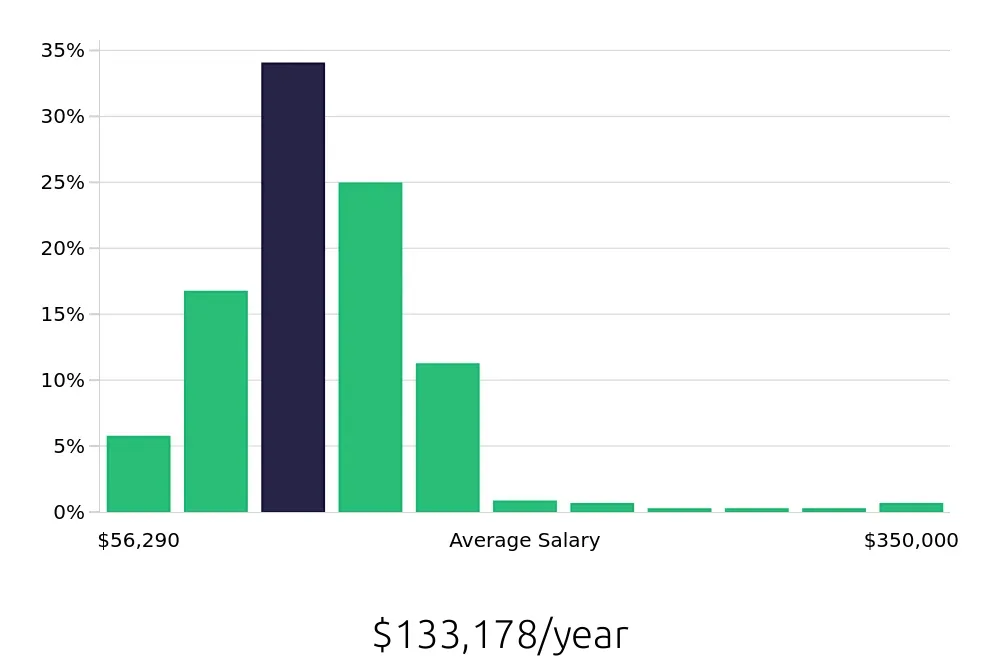What does a Neuropsychologist do?
A neuropsychologist evaluates and treats patients with brain injuries, illnesses, or disorders. They assess cognitive abilities and behaviors to develop treatment plans. Neuropsychologists work with patients to improve memory, attention, and other cognitive functions. They often collaborate with other healthcare professionals, including neurologists and psychiatrists.
These specialists conduct comprehensive evaluations using a variety of tests and assessments. They analyze results to understand brain function and how it affects behavior. Neuropsychologists may treat patients in hospitals, rehabilitation centers, or private practices. They play a crucial role in helping patients regain independence and improve their quality of life.
How to become a Neuropsychologist?
Becoming a neuropsychologist requires a clear path and dedication. This profession studies how the brain affects behavior. Neuropsychologists help patients with brain injuries or diseases. They work in hospitals, clinics, or private practices.
Here are five steps to start this rewarding career:
- Earn a Bachelor’s Degree: Start with a degree in psychology, neuroscience, or a related field. Focus on classes in biology, chemistry, and statistics.
- Get a Master’s Degree: Many programs require a master’s in neuropsychology. This degree often includes coursework and supervised clinical experience.
- Complete a Doctorate: Earn a Ph.D. or Psy.D. in clinical or counseling psychology with a focus on neuropsychology. A doctoral program includes coursework, research, and clinical work.
- Complete an Internship: Join a supervised internship. This hands-on experience helps build skills in neuropsychological assessment and treatment.
- Get Licensed: Licensure requirements vary by state. Most states need a passing score on the Examination for Professional Practice in Psychology (EPPP) and supervised experience.
How long does it take to become a Neuropsychologist?
Pursuing a career in neuropsychology involves several key steps. It takes a blend of education and hands-on experience. The journey often begins with earning a bachelor's degree, which usually lasts about four years. Most programs require courses in psychology, biology, and statistics. This degree lays the foundation for further studies.
After completing the bachelor’s degree, the next step is earning a doctorate. This might be a Ph.D. or a Psy.D. in neuropsychology. This doctoral program generally takes four to seven years. During these years, students take advanced courses and complete a dissertation. Some programs also require clinical internships. These internships provide valuable real-world experience.
Post-doctoral training often follows. This step involves working under supervision in a clinical setting. This training focuses on neuropsychological assessments and treatment. It usually takes one to two years. Completing this training can make a candidate more competitive in the job market.
Neuropsychologist Job Description Sample
We are seeking a skilled Neuropsychologist to join our team, dedicated to assessing, diagnosing, and treating cognitive and behavioral disorders related to brain function. The ideal candidate will have a strong background in neuropsychology and a commitment to providing high-quality patient care.
Responsibilities:
- Conduct neuropsychological evaluations to assess cognitive, emotional, and behavioral functioning.
- Interpret test results and develop individualized treatment plans for patients.
- Collaborate with multidisciplinary teams, including neurologists, psychiatrists, and rehabilitation specialists, to provide comprehensive care.
- Conduct research to advance the understanding of neuropsychological conditions and treatment methods.
- Provide education and support to patients and their families regarding neuropsychological conditions and coping strategies.
Qualifications
- Doctoral degree (Ph.D. or Psy.D.) in Clinical or Counseling Psychology with specialization in Neuropsychology.
- Board certification or eligibility for board certification in Clinical Neuropsychology.
- State licensure or eligibility for licensure as a psychologist.
- Proven experience in conducting neuropsychological assessments and providing treatment.
- Strong understanding of neuroanatomy, neurophysiology, and the effects of brain injuries and disorders.
Is becoming a Neuropsychologist a good career path?
A neuropsychologist studies how brain injuries, illnesses, or disorders affect behavior and thinking. This specialized role often involves working with patients who have experienced significant changes in cognitive functions due to strokes, traumatic brain injuries, or neurodegenerative diseases. The work requires a blend of clinical psychology and neuroscience, providing a unique opportunity to make a real difference in patients’ lives. Neuropsychologists typically work in hospitals, clinics, or private practice, collaborating with other healthcare professionals to develop treatment plans.
Choosing a career as a neuropsychologist offers several benefits and challenges. On the positive side, it provides the chance to help people improve their quality of life. Working in this field allows for a deep understanding of the brain and its effects on behavior. However, the path to becoming a neuropsychologist is long and requires significant education and training. The job can be emotionally demanding, as professionals often deal with serious and life-altering conditions.
Consider these pros and cons before pursuing this career:
- Pros:
- Helping patients improve their cognitive functions
- Combining psychology and neuroscience for a unique career
- Opportunities for research and professional growth
- Cons:
- Long education and training required
- Emotional challenges due to patient conditions
- Competitive job market in some areas
What is the job outlook for a Neuropsychologist?
The job outlook for neuropsychologists is promising, with an average of 1,280 open positions annually. According to the U.S. Bureau of Labor Statistics (BLS), this figure is expected to rise by 6.1% from 2022 to 2032. This growth reflects a growing understanding of the importance of brain health and the need for specialized care. Neuropsychologists play a key role in diagnosing and treating brain-related conditions.
A career in neuropsychology offers competitive compensation. The average annual salary stands at $101,170, with hourly wages averaging $48.64. These figures highlight the value placed on the expertise of neuropsychologists in the healthcare sector. This compensation reflects the complexity and importance of their work in helping patients with brain injuries, neurological disorders, and cognitive impairments.
Job seekers interested in this field can look forward to a stable and rewarding career. The demand for neuropsychologists continues to rise, offering many opportunities for growth and development. With the right qualifications and experience, professionals in this field can expect a fulfilling career with excellent prospects.
Currently 45 Neuropsychologist job openings, nationwide.
Continue to Salaries for Neuropsychologist


